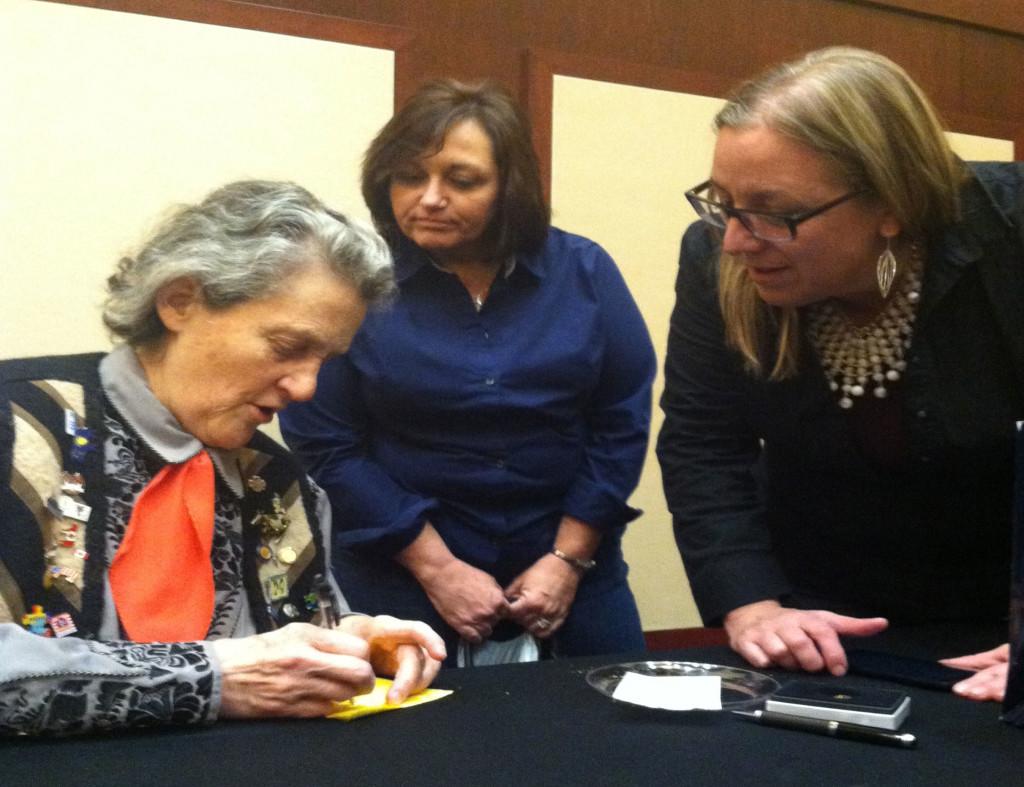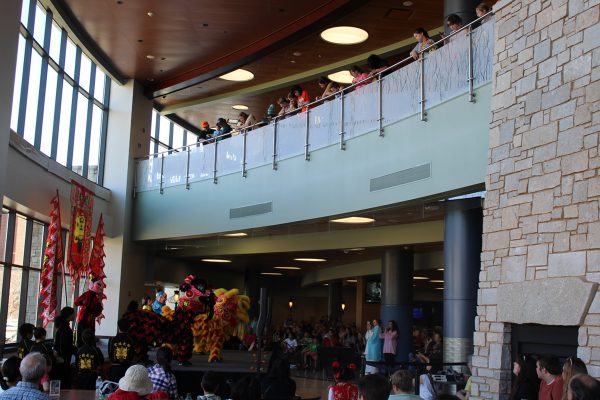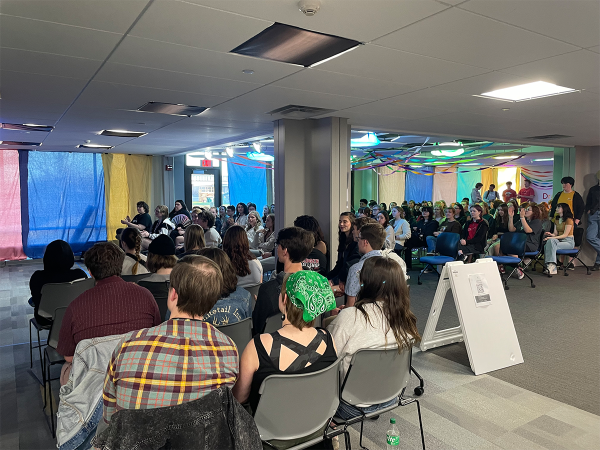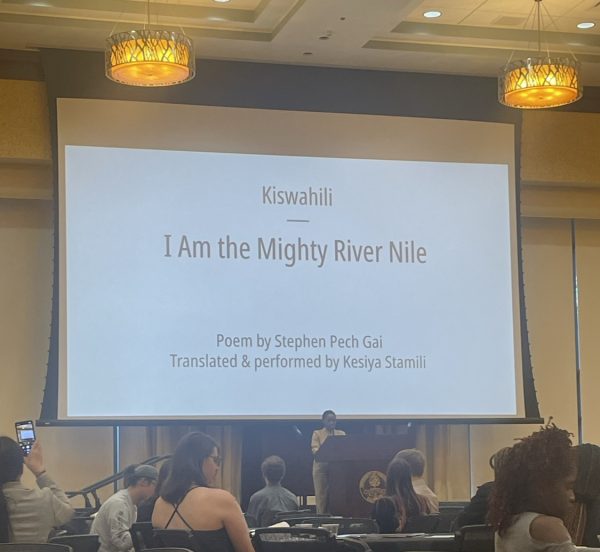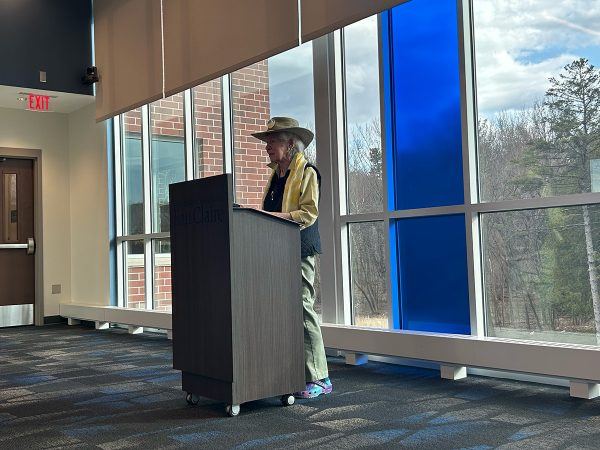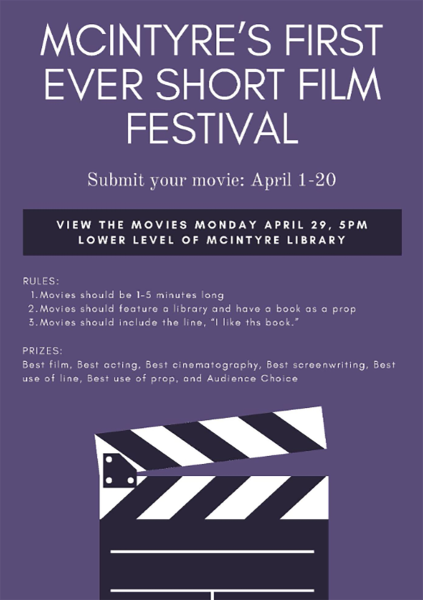Body, mind, Temple
Temple Grandin to speak in Zorn Arena tonight
Temple Grandin held a book signing in the Davies Center after her forum. A collection of Grandin’s books were also available for purchase.
February 17, 2015
Most children start to say their first words between 7 and 12 months of age, according to the article How Babies Learn to Talk, published in Consumer Health Complete.
Temple Grandin was listed in Time 100’s most influential people in the world in the “Heroes” category in 2010, but she didn’t start talking until she was nearly 4 years old.
Grandin is one of more than 3.5 million adults in the U.S. with an autism spectrum disorder. Instead of letting ASD control her life, Grandin uses it as an asset in her journey to improve animal welfare in the livestock industry and advocate early intervention for children with ASD.
Grandin was the fourth speaker this year in UW-Eau Claire’s Forum Series tonight in Zorn Arena.
Forum Series speakers normally present in the Schofield Auditorium, but the University Activities Commission had to move Grandin’s event to a larger space due to high interest level.
Elise Randall, a cashier at the Service Center, said a typical forum sells about half the available tickets. As of Monday morning, 715 of the 1,000 available tickets were already purchased.
Kristin Schumacher, Assistant Director for Activities, Involvement and Leadership, said Grandin was chosen as a speaker because of the obstacles she has overcome.
“I feel she has a compelling story to tell,” Schumacher said.
And overcome she has. The employment rate for adults with a disability was 33 percent in 2012, according to the Disability Status Report from Cornell University. The employment rate for disabled adults has actually decreased, despite the Americans with Disabilities Act of 1990.
Even with the small employment percentages over the years for people with disabilities, Grandin earned her doctoral degree in animal science and went on to design ethical livestock handling facilities in the U.S. and abroad.
Grandin won the Proggy award in the “Visionary” category from People for the Ethical Treatment of Animals. HBO did a semi-biographical film of Temple Grandin, which won the Peabody Award in 2011.
Grandin’s work incorporates her ASD. In her TED Talk, Grandin explains that her heightened attention to detail allows her to better understand what makes livestock animals uncomfortable.
Based on her observations, Grandin designs livestock handling facilities that minimize animal discomfort.
Because Grandin is able to use her ASD as an asset, her work argues that all types of minds can contribute to society. Her forum, “Different Kinds of Minds Contribute to Society”, stressed that different types of minds can work together to create something great.
Grandin cited the iPhone as an example of different mind types merging together. Steve Jobs had a vision, but he was not able to code. Programmers took the idea and translated it into reality.
People with ASD are often very talented in one area, but lack in others. Grandin said society often focuses too heavily on the areas ASD people struggle with.
“There’s too much attention on the deficit, and not enough on building up the strengths,” Grandin said.
Grandin’s emphasis on early intervention for children with ASD encourages them to get involved with activities that help build their strengths, rather than focus on their weaknesses.
The next speaker in The Forum Series is Mark Lynas. “GMOS are Green: How an Environmentalist Changed his Mind on Biotechnology” is at 7:30 p.m., April 8 in Schofield Auditorium.

